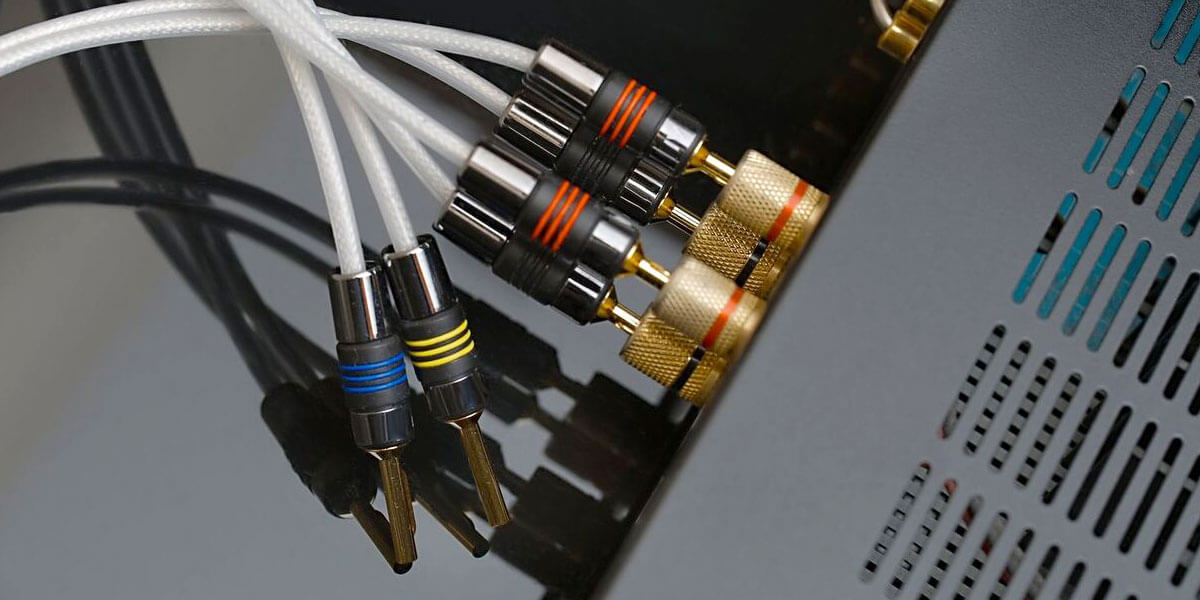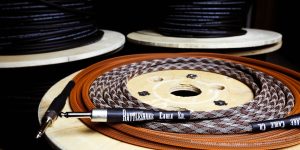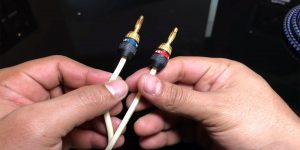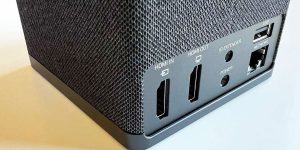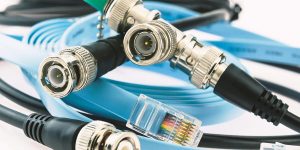When setting up your home audio system or home theater, speaker wire connectors may not be the first thing on your mind. However, choosing the right connectors can greatly affect your sound quality. In this article, I’ve tried to cover speaker wire connector types as much as possible and explain what factors you should consider when choosing them.
Speaker wire connectors: an overview
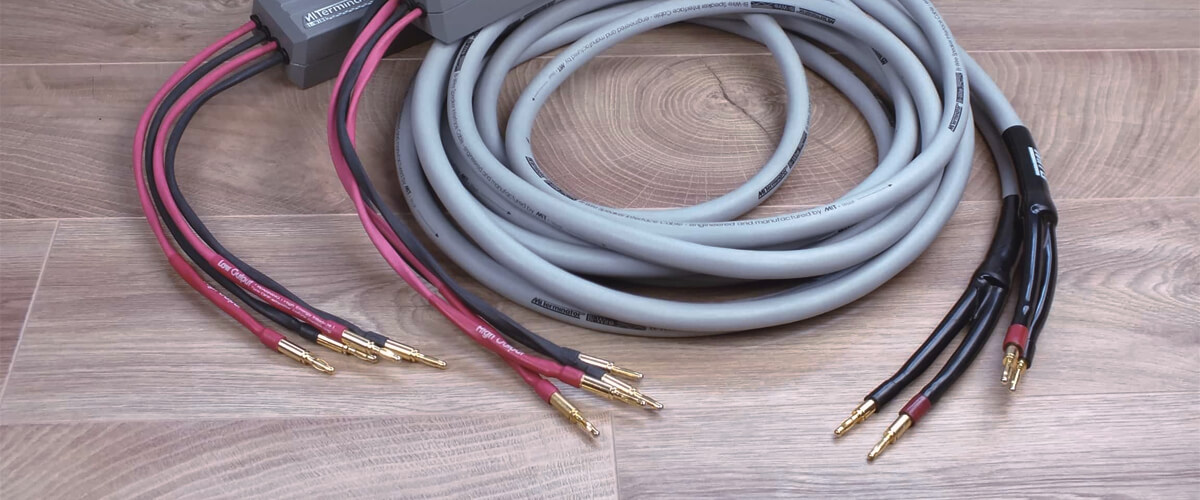
Speaker wire connectors serve as a link between speakers and audio equipment connected by cables. And it cannot be ignored that, being part of the chain in signal transmission, each type of speaker wire connector impacts the final result. If the size and quality of the wire, respectively, the connector, is not capable of transmitting a powerful analog signal, you can expect interference or sound interruptions. That’s why it’s so important to establish a safe and reliable connection between your speakers and audio equipment at all stages.
Let’s look at the most common types of speaker wire connectors and some of their features. Knowing what may be expensive and high quality for professional systems is not always suitable for home environments, nor is it a necessity. So read carefully.
Bare wire connections – simplicity and versatility
The classic and simple approach how to connect speaker wires involves directly connecting the bare ends of the speaker wires to the connection posts or terminals of the speakers and amplifier. While this connection may seem primitive, it provides excellent flexibility and compatibility since virtually all speakers and amplifiers can work with bare wires. Many stereo receivers, amplifiers, and AVRs also have terminals for bare-wire connections. Therefore, this approach has stood the test of time and is universal, not to mention that it does not require financial costs. Although, of course, this is not the most aesthetically pleasing method for fans of order.
All you need to do is strip the speaker wire ends. This seemingly simple action nevertheless requires care because, without protection in the form of connectors, there is a small risk of bare wires coming into contact with each other, which can lead to short circuits.
Banana plugs – convenience and reusability
When looking at speaker plug types, it is worth starting with the banana type. These are very popular and fit speakers and receivers that have attachment terminals. These plugs have a pin inserted into the connection posts or terminals, simplifying installation and ensuring a secure electrical connection. And because of the ability to easily disconnect and reconnect, banana plugs are ideal for those who frequently rearrange their audio systems or speakers. Banana plugs also come in double and single, making them quite versatile. You can even use them to connect a subwoofer if your amplifier doesn’t have the necessary output.
Spade connectors – secure and reliable
The other most common speaker terminal connectors are spade connectors, also called plug connectors. They provide a secure and stable connection because the wide surface area of spade connectors provides a secure connection, minimizing the risk of accidental disconnection. Shaped like a spade, these connectors feature a flat U-shaped terminal attached to the connection posts using screws or similar mechanisms. It is important to note that these connectors should be crimped.
Pin connectors – simple and cost-effective
Pin connectors are a simplified version of banana-type connectors for connecting speaker wires. These connectors have a single contact: a straight metal pin inserted into the speaker terminal. Pin connectors are cost-effective and are a simple but effective way to connect basic speaker systems. You can choose from straight pins, locking pins, and spring-loaded pins, although still not the most popular connection method.
RCA connectors – versatility and compatibility
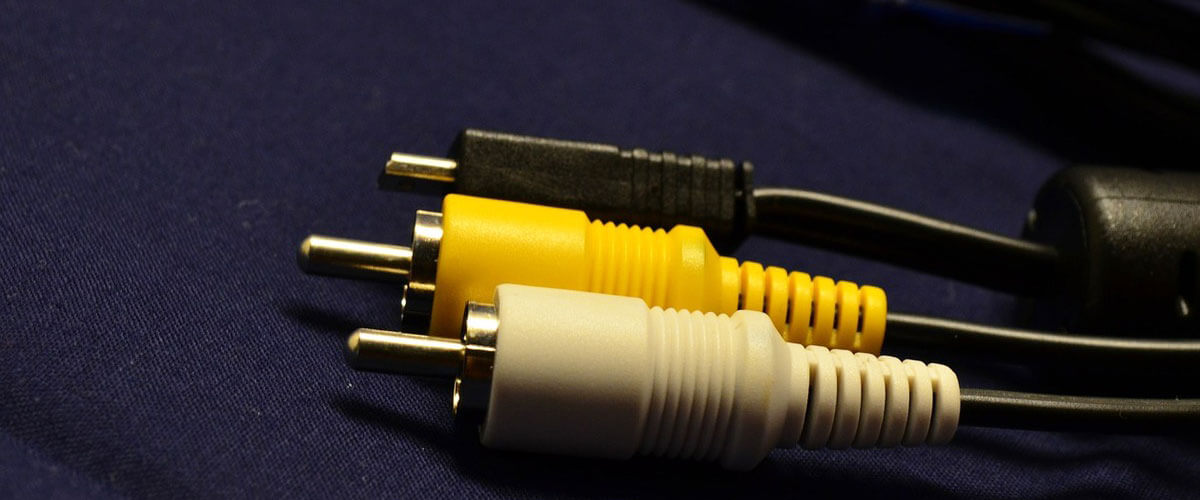
Although RCA connectors (which have been around since the early 1940s) are commonly associated with audio and video connectors, they also find their place in speaker wire connections. These connectors have a center contact surrounded by a metal ring that provides a stable connection to various audio equipment. They offer versatility and compatibility, especially when connecting to AV receivers or powered speakers. However, their simplicity is not reliable because you can easily interrupt the connection with one awkward movement.
Binding posts – versatile and secure
Binding posts are a standard type of connector used in many loudspeakers and amplifiers. These versatile connectors allow for various connection types, including bare wire, banana plugs, and spade connectors, for flexibility in creating different configurations. They are chassis-mounted and look like conventional screws, but they offer good signal transmission and durability because they are gold-plated.
XLR connectors – professional-grade audio connections
XLR connectors are often used in advanced audio systems and provide balanced audio connections, minimizing interference and ensuring clear sound quality. Although XLR connectors are not commonly found in consumer audio systems, they are highly reliable and suitable for complex audio systems. This is why they are found in installations with professional audio equipment such as microphones, active speakers, and audio interfaces.
TRS plugs – versatile and balanced
Tip-Ring-Sleeve (TRS) plugs, commonly used for connecting headphones, can also connect speaker wires (balanced audio connections). TRS connectors are versatile and provide balanced audio transmission, reducing noise and improving sound quality to handle stereo and monaural audio signals. They are most commonly found in studio monitors, headphones, and audio interfaces.
Considerations for speaker wire connectors
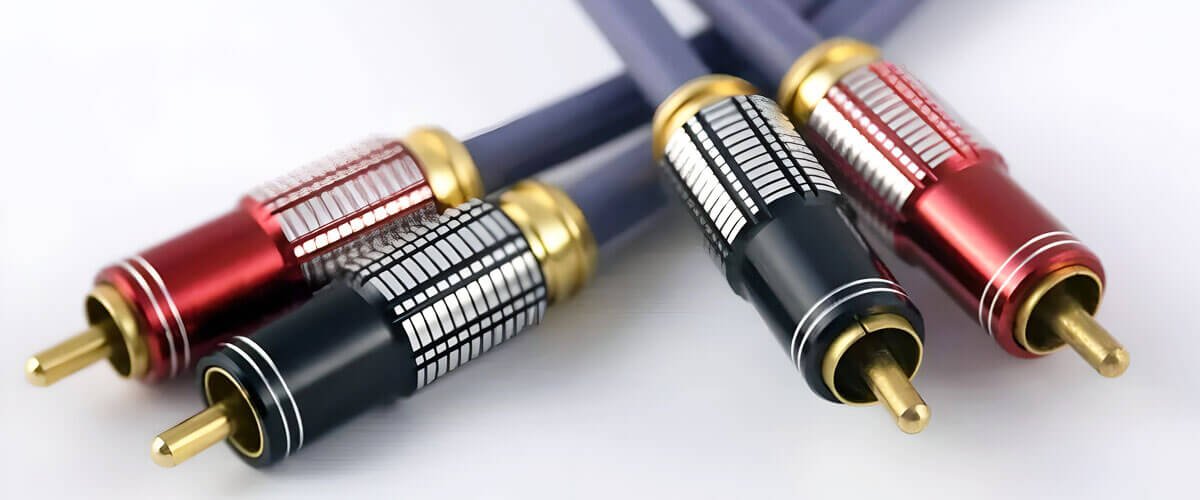
Since the proper selection of speaker wire connectors plays an important role in ensuring smooth and quality sound transmission when building an audio system, to make an informed decision, I recommend that you consider the following factors:
Compatibility with wire gauge (thickness): A snug and secure fit ensures efficient signal transmission without loss or degradation, so choosing connectors that match the wire gauge you’re using is important.
Ease of installation: Connectors are designed to make your life easier. Consider user-friendly types and provide an easy installation process, especially if you move your audio system frequently or are an avid audiophile.
Reusable: Some connectors have the added benefit of being reusable (banana plugs, spade connectors, and connector stands). This feature saves time and effort and minimizes wear and tear on speaker wires.
Signal integrity: The ultimate goal of any audio system is to provide high-quality sound, so choose connectors that minimize signal loss and interference.
Budget: While high-end connectors may have some extra advantages or high-quality materials, you can find connectors that perfectly balance performance and affordability. Of course, you shouldn’t compromise on quality, but I’m also not a stickler for buying expensive items without having the ability to do so.

